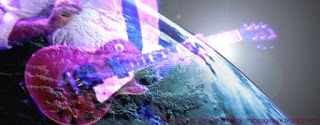~ Louis H. Sullivan
Mage Music 54
Note: As always, use of the masculine gender is not meant to exclude the feminine.
Mage Music 54
Louis Sullivan (1856-1924) wasn't an occultist, though you might think so from the above quote. He wasn't a theologian or philosopher, either. Mr. Sullivan was an architect.
Mentor to Frank Lloyd Wright and called "father of the skyscraper", Mr. Sullivan was a visionary who coined the phrase "form ever follows function". The shortened version we are more familiar with, "form follows function", is fully stated as the aesthetic credo quoted above. Things are known by how they manifest in the world.
When Louis Sullivan put forth his ideas in his article "The Tall Office Building Artistically Considered"(Lippincott's Magazine, March 1896: 403-409), he was discussing a new approach to architecture that addressed the engineering problems associated with buildings that went up, way up. He understood that the old ways of doing things could literally not support the new needs.
Form follows function means that to bring about the true manifestation of a thing, the shape should express what its purpose is, but Louis Sullivan was also talking about much more than skyscrapers. New function goes hand in hand with new aesthetic freedom as well.
More or Less
Obviously the forms of things don't have to be shaped by their functions. We love all the embellishments - the different colors and looks and sizes - knowing they're all just icing on the cake and that none of it has anything to do with the function of the objects that have been so decorated. If we didn't love the flash and the bling, the meaningless difference, we wouldn't crave - much less put up with - all the options for cars, computers, clothes or covers for iPhones.
In the world of true manifestation, though, even the ornamentation needs to be in alignment with function. Sometimes even a little more is just too much. This is true with music as well as Magick.
I remember thinking, back in the late 1960s, how amazing it was that Cream and The Jimi Hendrix Experience could put out such a rich and complete sound with just three musicians each. I also remember being very disappointed with bands whose music was full and deep on their albums, but that on stage came across like skim milk compared to the recordings. For them, what was created using multiple tracks and engineering in a studio was not duplicable live. Needless to say, Led Zeppelin wasn't like that - there was just as much live as there was on the albums, if not more.
That's because every component of Led Zeppelin's music, whether on stage or recorded, was an expression of the function of the ritual of the music. Every beat, every riff was an expression of the song's purpose. Every component of each performance was essential. And every musician's input was crucial to the construction of the ritual.
In his comment on the Page/Plant tour of 1998 on jimmypage.com (On This Day, May 18), Jimmy Page said: "With a stripped-down line-up ... it gave us more freedom to explore and re-work the songs, without the orchestra and supplementary musicians ..."
Not only can more be too much, more can't always make up for a missing essential. The Magick of Led Zeppelin was in the alchemy of those four musicians, and adding more musicians down the line could not recreate the true manifestations of the missing members of the band. Life is recognizable in its expression. It can't be simulated; it must be a true manifestation of the purpose.
Designing Ritual
While objects and actions of ritual - Magick or music - that come from elsewhere can be used as inspiration, in fact true manifestation comes from expression of the Mage's own desire and will. That means that using ritual from some other source, no matter how successful it is for the other source, is not necessarily going to manifest anything for the Mage that he intends until all the objects and actions become his own.
Thus, creating a ritual starting from scratch is in a way easier - or at least less risky - than starting with a pre-existing design. When all component parts have to have meaning and form within the function of the intended purpose, using enough of the wrong ones leads to failure. The notes, pitch and all components of the melodies, riffs and rhythms of music and the ceremonial objects and actions of Magick have to be the right ones in the right quantities and they have to express the function of the performing musician's or Mage's intended purpose - not some other band's or Aleister Crowley's.
No substitutions! Original work only! No grading on a curve! According to Louis Sullivan, it's the law.
♫
Note: As always, use of the masculine gender is not meant to exclude the feminine.




